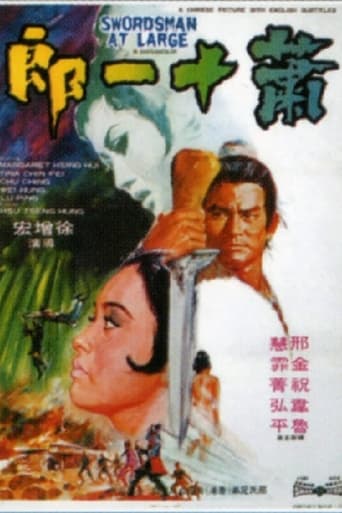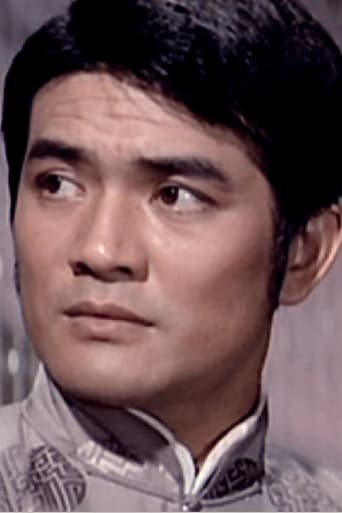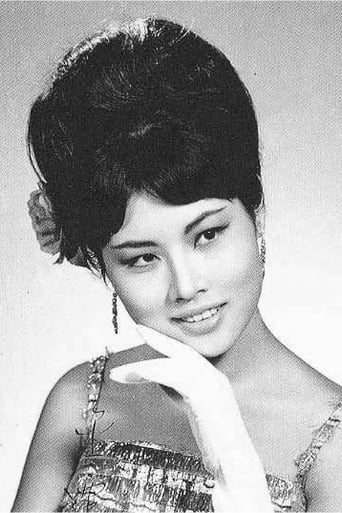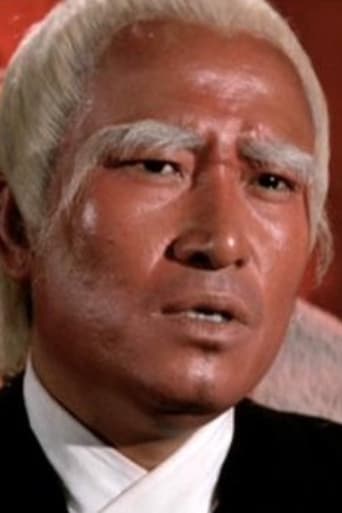Swordsman at Large (1971)
Frankie Wei Hung is the Swordsman At Large, who everyone wants to kill. They even create a superlative sword simply for this purpose, but the blade is soon coveted even more than the hero's death by it! Bandits, beauties, and blade masters battle for survival in this exciting story of deceit, betrayal, and death, expertly guided by the same director who brought The Twin Swords, The Thundering Sword, and The Sword And The Lute to the Shawscope screen.
Watch Trailer
Free Trial Channels
Cast


Reviews
Too much about the plot just didn't add up, the writing was bad, some of the scenes were cringey and awkward,
At first rather annoying in its heavy emphasis on reenactments, this movie ultimately proves fascinating, simply because the complicated, highly dramatic tale it tells still almost defies belief.
It's a good bad... and worth a popcorn matinée. While it's easy to lament what could have been...
A terrific literary drama and character piece that shows how the process of creating art can be seen differently by those doing it and those looking at it from the outside.
SWORDSMAN AT LARGE (1971) is an intriguing Shaw Bros. swordplay adventure that starts out as a typically convoluted array of various parties involved in a desperate search for a precious sword called the Deer Knife and assorted treacheries that arise. However, about half-way through, the narrative shifts to a deeply touching and affecting love story between a girl from the region's richest family who'd been kidnapped by the bad guys and the hero who rescues her, a Robin Hood type who has a bad rep because of various impersonators committing heinous crimes in his name. The girl, identified only as Miss Shum, gradually comes to recognize the outlaw, known as Xiao the Rambler, as a good and noble man and falls in love with him and he with her. They even share a song together, a slow lament about the sheep and the wolf, sung in the moonlight at an outdoor tavern, a remarkable piece of poetry unlike any song I've ever heard in a Hong Kong movie. This whole romantic twist is quite unexpected in a film like this, but it does indeed arise naturally from the plot and the characters, so it makes perfect dramatic sense. In fact, it pushes aside all the other characters and plot threads for most of the middle section of the film, which was fine with me because I was getting confused by it all anyway.Ultimately, everyone has to get back to the business of finding and retrieving the Deer Knife from a band of vicious bandits led by a nomad leader named Happy King, who has become quite obsessed with Miss Shum himself. It all culminates in a big battle in Happy King's tent involving various fighters, Happy King's thugs and a showdown between Xiao and Happy King. One of the more interesting characters involved is a swordswoman of dubious loyalty named Xi Niang, who's quite a fashion plate and changes outfits at least five times in the course of the film, even though we never see any luggage on her horse! The cast is led by Frankie Wei Hung (FIVE TOUGH GUYS) as Xiao the Rambler, Margaret Hsing Hui (THE SWIFT KNIGHT) as Miss Shum, and Tina Chin Fei (TEMPTRESS OF A THOUSAND FACES) as Xi Niang. Margaret is very beautiful and resembles a young Rosamund Kwan. She's also quite a capable actress. Tina not only offers dazzling costume changes but some vigorous fighting as well and it makes us wish she'd done more action roles in her career. Sammo Hung appears in the opening sequence as a hapless bad guy who has a particularly ill-fated encounter with Xi Niang.The screenplay is credited to Ku Lung and it has a number of the writer's characteristic "martial world" touches. The big difference, of course, is that it wasn't directed by Ku Lung's regular director, Chor Yuen, but instead by Hsu Cheng-hung who did the spectacular Red Lotus trilogy from 1965-66 (TEMPLE OF THE RED LOTUS, TWIN SWORDS, and THE SWORD AND THE LUTE, all also reviewed on this site). Much of it was filmed outdoors so it looks a tad more—dare I say it?—realistic, as opposed to the stylized, mythic studio-built look that Chor Yuen crafted so meticulously in THE MAGIC BLADE, CLANS OF INTRIGUE, JADE TIGER, LEGEND OF THE BAT, etc.








